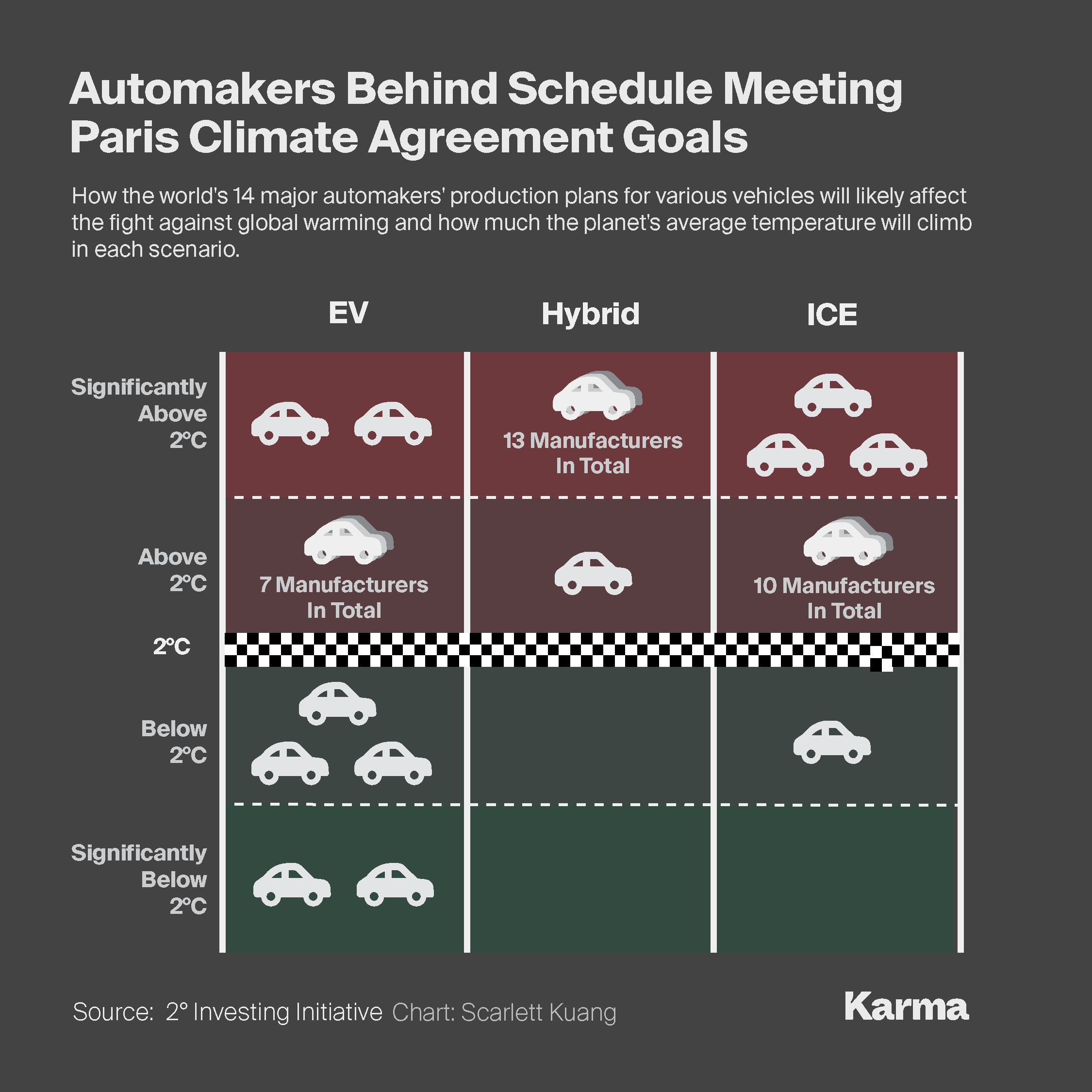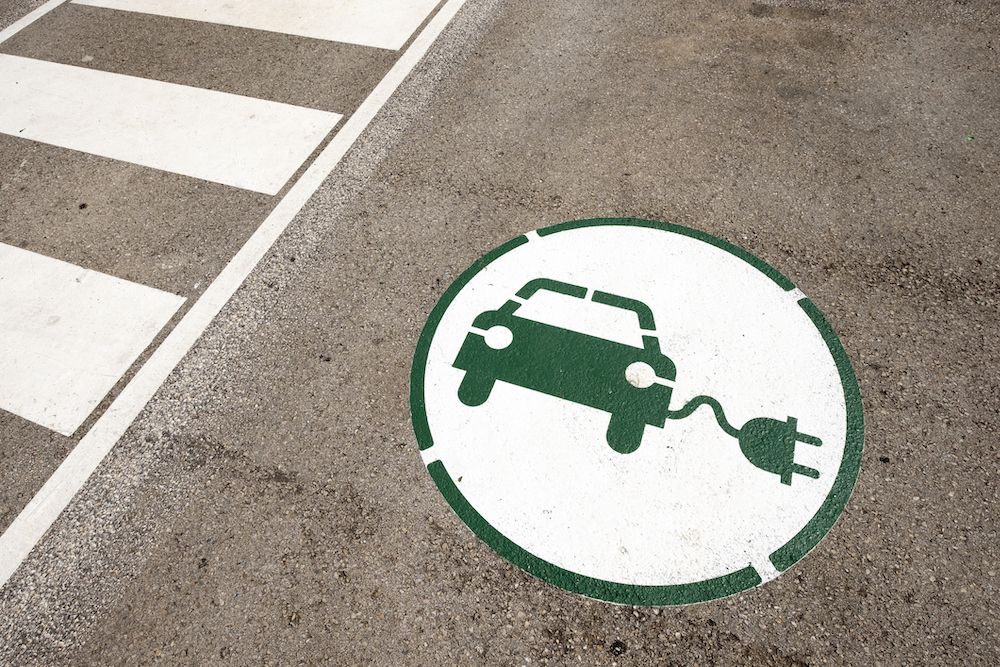- Major automakers are behind schedule in meeting goals of the Paris Climate Agreement.
- Norway provides incentives to its citizens so they can buy an electric vehicle for less than an internal combustion engine vehicle.
- Within the decade, EVs will cost the same as internal combustion engine vehicles, thanks to progress on batteries.
None of the world’s 14 major automakers are on track to reach greenhouse gas emission goals, according to a new report, despite the widespread attention paid to the signing of the Paris Climate Agreement.
Automakers plan to build an astonishing 43 million more internal combustion engine (ICE) vehicles in the five-year period that ends in 2024, limiting the ability to reach the Paris accord goal of bringing global warming down to less than 2°C, the report said. They are also under-producing both electric vehicles (EV) and hybrids.
“[No major auto manufacturer has] future production plans that are entirely aligned with climate scenarios consistent with limiting warming to less than 2°C, indicating that despite some new commitments, the industry needs to change gear,” wrote the authors of “Changing Gear: Alignment of Major Auto Manufacturers With the Goals of the Paris Agreement.”
The report, published by the Institutional Investors Group on Climate Change, studied the world’s top manufacturers’ planned output and found only two manufacturers — the German Daimler and the Chinese Geely — with plans to make EVs, which are partially aligned to limiting global average temperature increase. Three other automakers are set to build enough EVs to keep global warming “compatible” to the levels the Paris Agreement calls for, while only Geely is onboard to reduce ICE production enough to reach that goal.

Nearly 200 nations, including the U.S., signed the Paris Agreement, which took effect in November 2016 and set a global framework to avoid dangerous climate change by limiting global warming. The U.S. formally pulled out of the agreement in December.
“My general view is that without aggressive policies, including regulations, it’s clear that the industry is not going to stay on the path in terms of greenhouse gas emissions,” H. Christopher Frey, a professor of environmental engineering and the Glenn E. Futrell Distinguished University Professor at North Carolina State University, told Karma.
Frey added that consumers could help push the agenda, but they lack the power that comes with the enforcement of laws.
In the absence of strong leadership in some countries, Frey applauded automakers for pushing ahead with a range of vehicles that lower emissions, such as EVs, hybrids, which use both gasoline and electricity, and even hydrogen-powered engines now being produced by BMW and others.
While ICE vehicles now cost less than EVs, within the decade, the price gap between the two types of vehicles is expected to narrow because advancements in the electric batteries used to run EVs will cause prices to drop, according to a paper from the International Council on Clean Transportation (ICCT). Frey added that EVs have other advantages too: they are more durable than ICE vehicles and cause less air pollution.
The countries most aggressively adopting “clean” vehicles are Norway, which provides its citizens with incentives so that EVs cost less than ICE vehicles, and China, which has instituted widespread use of EV buses for public transport, according to the ICCT report.
There are other signs of a shift. The ride service company Lyft announced Wednesday that by 2030, all its fleet — cars, SUVs and trucks — would be EVs or other low-polluting vehicles. On Tuesday, Lordstown Motors announced plans to begin building the nation’s first fully electric pickup truck, the Lordstown Endurance, in its Ohio plant this year.
However, the U.S. in general has fallen short, maintains Frey.
Two years ago, for example, the Trump administration froze the practice of requiring automakers to produce more energy-efficient vehicles with each new model year, regulated under a set of federal rules called the Corporate Average Fuel Economy (CAFE). “The Trump administration has created a big mess,” Frey added, “a legal mess, an environmental mess, an economic mess — and [the trajectory is] not going in the right direction.”






















